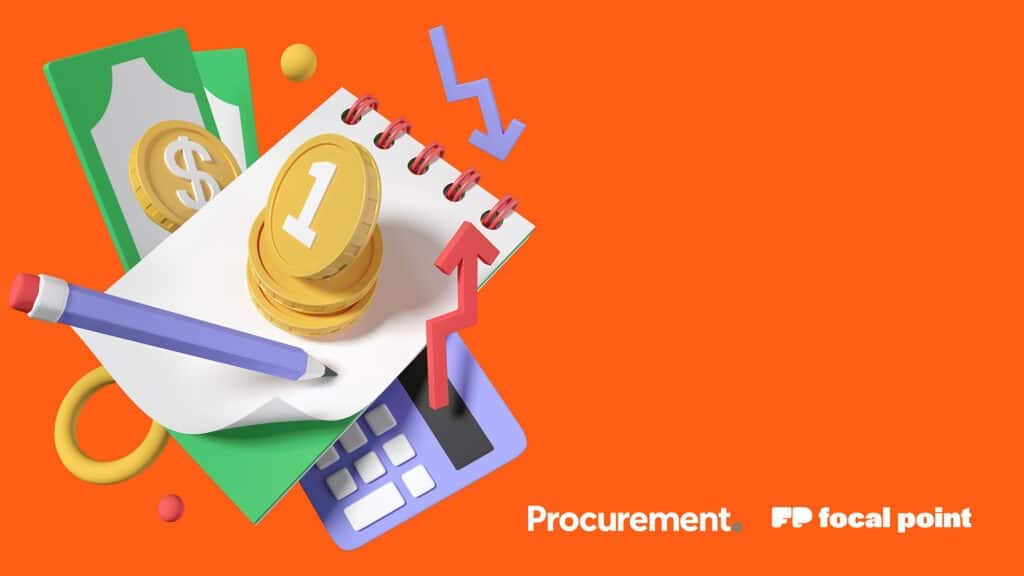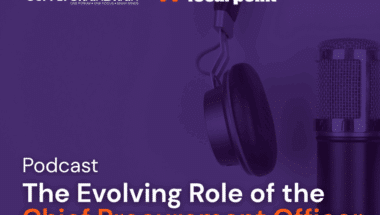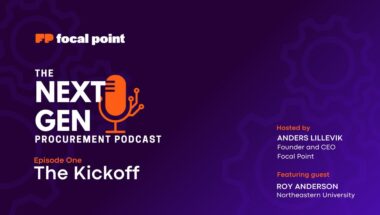How can purchasing teams implement a planned procurement strategy?
The end of the year marks budgetary conversations and reevaluations of existing workflows and practices, and supply chain management teams and CPOs are thinking about how they can improve existing processes while saving costs. Anders Lillevik, CEO and Founder of Focal Point, is actively working on the implementation of planned procurement to ease pain points and augment procurement. He explains to Procurement Magazine how that strategy can be implemented and the value it can bring.
The concept of planned procurement
What is planned procurement?
Planned procurement is the concept of proactively managing procurement efforts and looking ahead in the procurement process to more easily and effectively manage incoming activities such as contract renewals, funded projects, and more. This strategy of planned procurement enables procurement leaders and teams to more efficiently manage procurement efforts across the organization. By proactively managing the work procurement takes on, resources can be more efficiently allocated to support strategic projects and unplanned projects as they arise.
Why are procurement teams thinking about planned procurement this year, and how is it different from previous years?
The past year or two have marked an exceptionally turbulent period as we feel the repercussions of the recession. In addition, there are significantly higher process demands for procurement in the shape of regulations and social pressures including ESG. These things combined make procurement efforts longer to execute properly making planning the work even more important.
Tightening budgets due to the recession and economic instability have resulted in much more scrutiny when it comes to quarterly and annual expense discussions, emphasizing the importance of taking an aggressive approach to procurement. CPOs can use planned procurement to come to the table with a detailed account of all upcoming expenses and a timeline for said expenses, offering greater visibility into future purchasing decisions. Additionally, an increased reliance on SaaS subscriptions over the past several years means there are many more ongoing expenses to account for and procurement teams must be aware of and prepared to pay these out accordingly.
Furthermore, last year’s massive supply chain disruptions demonstrated the need for a more dedicated approach to managing suppliers and their supply chains. Procurement teams can leverage planned procurement methods to organize and analyze data on existing supplier relationships and the status of what is needed so they can more effectively manage backup suppliers and vendors in the situation of a disruption.
Technology in planned procurement
How can technology be leveraged to drive planned procurement efforts?
The key to leveraging planned procurement is to first begin with a digital procurement strategy. Planned procurement, and all procurement activities, can greatly benefit from the use of technology to better organize, manage, analyze and leverage supplier and supply data.
Planned procurement relies on a proactive approach to existing supply chain and future supply chain methods. Not only will it allow teams to have a better understanding of what is in play and what is coming down the pipeline, but it will also allow them to predict future situations and put parameters in place for similar scenarios in the future.
How can procurement teams begin to truly implement planned procurement?
Chief Procurement Officers and Supply Chain Managers can leverage planned procurement methods by first implementing digital procurement techniques and strategies. By having an organized and digital account of all suppliers, vendors, and processes, teams can more efficiently see where the holes are and what must be fulfilled.
Data organization is a first step, but is by no means the end of the road. The organization of data is only as good as a teams’ following analysis and action – essentially, how they are using this data organization to strategically spot blindspots and address blindspots. By having an efficient data analysis strategy in place, procurement teams can have greater visibility into all upcoming payments, specific vendors and regulations, and potential holes in the process – avoiding disruptions and mismanagement.
How will planned procurement help address future supply chain disruptions like the ones we saw last year?
Supply chain disruptions are almost inevitable when we consider the extreme range of suppliers all across the globe and various climate and financial impacts that are likely to impact the transfer of goods and services via planes, ships, trucking and more. Planned procurement becomes a need to have instead of a nice to have as we continue to see these events negatively impacting procurement and workflows across industries and organizations.
Prior to the use of planned procurement and digital procurement strategies, if a ship carrying all of an organizations’ products was unable to arrive at its destination or port, supply chain managers and teams would have to scramble in real time to either identify backup suppliers or attempt to do without said goods. However, with planned procurement successfully implemented, teams are able to take care of some of these issues ahead of time.
Through planned procurement, procurement teams can proactively find backup vendors and routes, allocate the correct resources efficiently and put a crisis plan in place ahead of the crisis – allowing teams to really focus on the most strategic approach to solving an issue when it happens as opposed to trying to move as fast as possible and likely leaving holes in the resulting journey.
_____________________________________________________________________
BizClik is a global provider of B2B digital media platforms that cover ‘Executive Communities’ for CEOs, CFOs, CMOs, Sustainability Leaders, Procurement & Supply Chain Leaders, Technology & AI Leaders, Cyber Leaders, FinTech & InsurTech Leaders as well as covering industries such as Manufacturing, Mining, Energy, EV, Construction, Healthcare + Food & Drink.
BizClik, based in London, Dubai & New York offers services such as Content Creation, Advertising & Sponsorship Solutions, Webinars & Events.
This article was originally published in Procurement Magazine.



